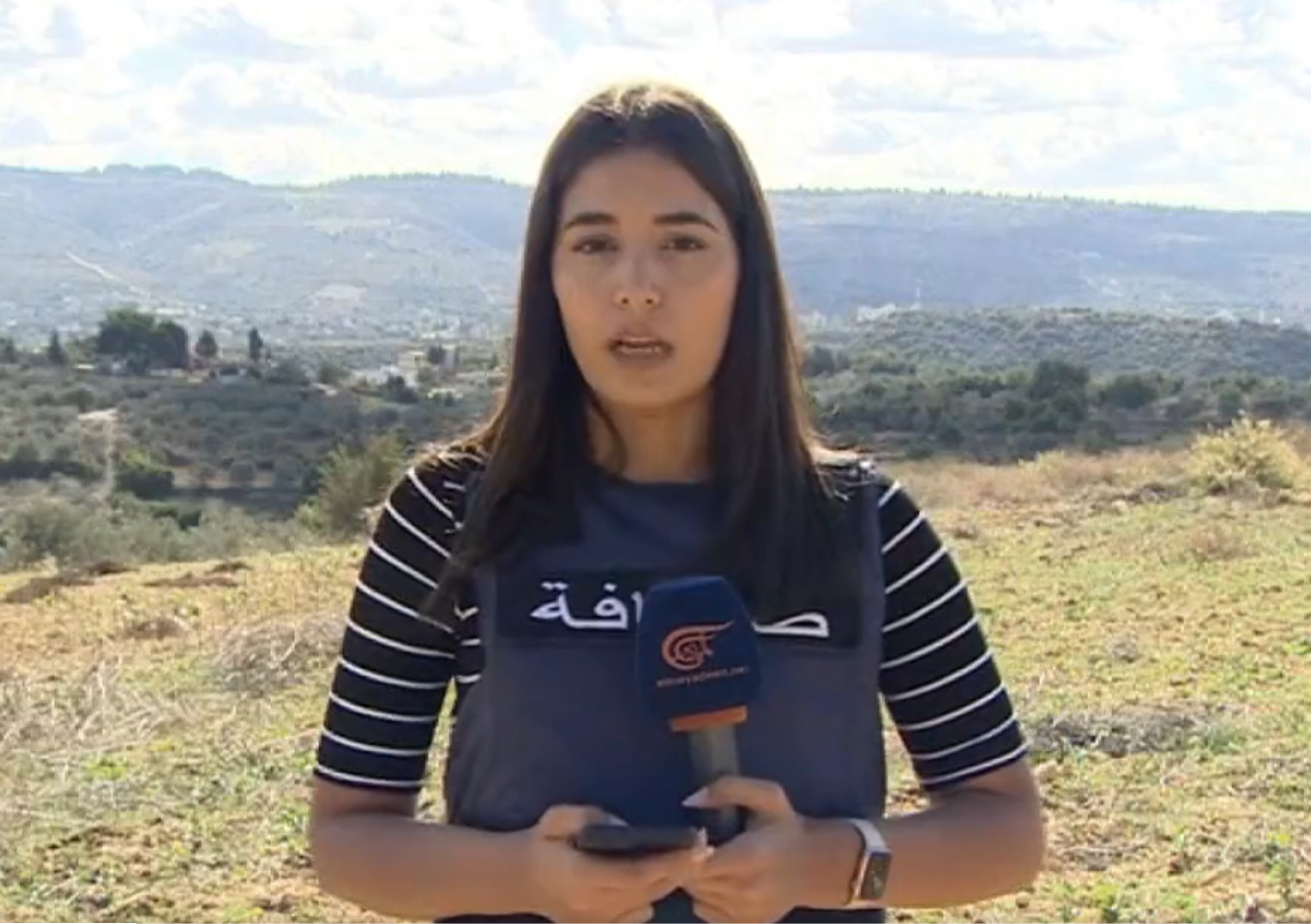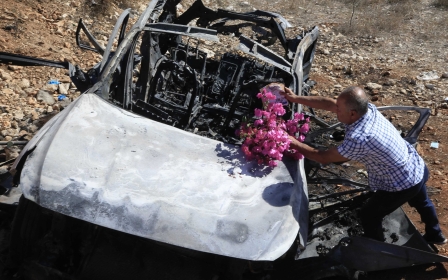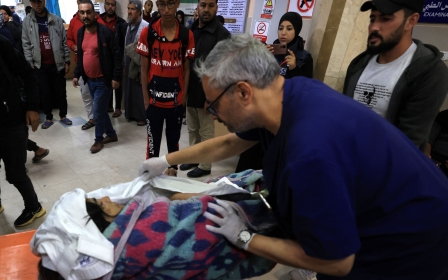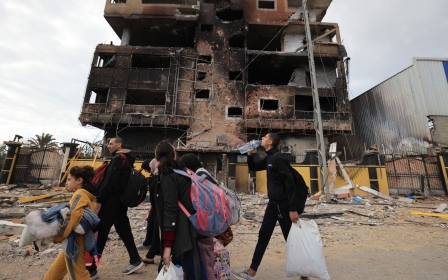Israel-Palestine war: Two journalists and two civilians killed by Israeli strikes on Lebanon

Two Lebanese journalists and two civilians were killed by Israeli strikes in southern Lebanon on Tuesday, according to local media.
Rabih Maamari and Farah Omar, who worked for local channel Al-Mayadeen, died in a bombing near the town of Tir Harfa, about a mile from the southern border, according to the official National News Agency (NNA).
Al-Mayadeen, which is politically hostile to Israel and uses quotation marks when referencing the country in English, said the attack was a "deliberate" targeting of their journalists.
Earlier, the NNA said an elderly woman was killed and her granddaughter wounded by an Israeli attack on south Lebanon's Kfar Kila.
"Enemy aircraft raided inhabited houses in Kfar Kila, leading to the death of citizen Laiqa Sarhan, 80, and the wounding of her granddaughter," the NNA said.
Three journalists have now been killed in Lebanon as a result of the conflict to its south. Issam Abdallah, a Beirut-based videographer for the Reuters news agency, was also killed near the Lebanon border by shelling from Israel on 13 October.
Border clashes between Hezbollah, allied groups and Israel started a day after a Hamas-led assault from Gaza killed more than 1,200 people in Israel on 7 October and have continued sporadically ever since.
Israel's relentless bombing of Gaza since then has killed over 13,000 Palestinians, including at least 5,600 children, according to the Palestinian health ministry.
According to AFP, fighting in southern Lebanon has left at least 92 dead, mostly Hezbollah fighters, but also at least ten civilians.
Israeli authorities say nine people have been killed on the Israeli side, including six soldiers.
The conflict in Gaza has also seen what media monitoring groups have called "unprecedented" numbers of journalists killed.
Since 7 October, at least 50 journalists have been killed in Gaza, Israel and Lebanon, according to the Committee to Protect Journalists (CPJ).
Sherif Mansour, the CPJ's Middle East and North Africa Programme Coordinator, told MEE earlier this month the Israeli army needed to make their rules of engagement more transparent, as many of the journalists in Gaza "may not have the option to avoid combat situations".
"Of course the toll is heartbreaking and unfortunately it is paid by, and continues to be paid by, Palestinian journalists who face an outsized risk," he said.
"This is a sacrifice that should not be made easily."
Middle East Eye propose une couverture et une analyse indépendantes et incomparables du Moyen-Orient, de l’Afrique du Nord et d’autres régions du monde. Pour en savoir plus sur la reprise de ce contenu et les frais qui s’appliquent, veuillez remplir ce formulaire [en anglais]. Pour en savoir plus sur MEE, cliquez ici [en anglais].




